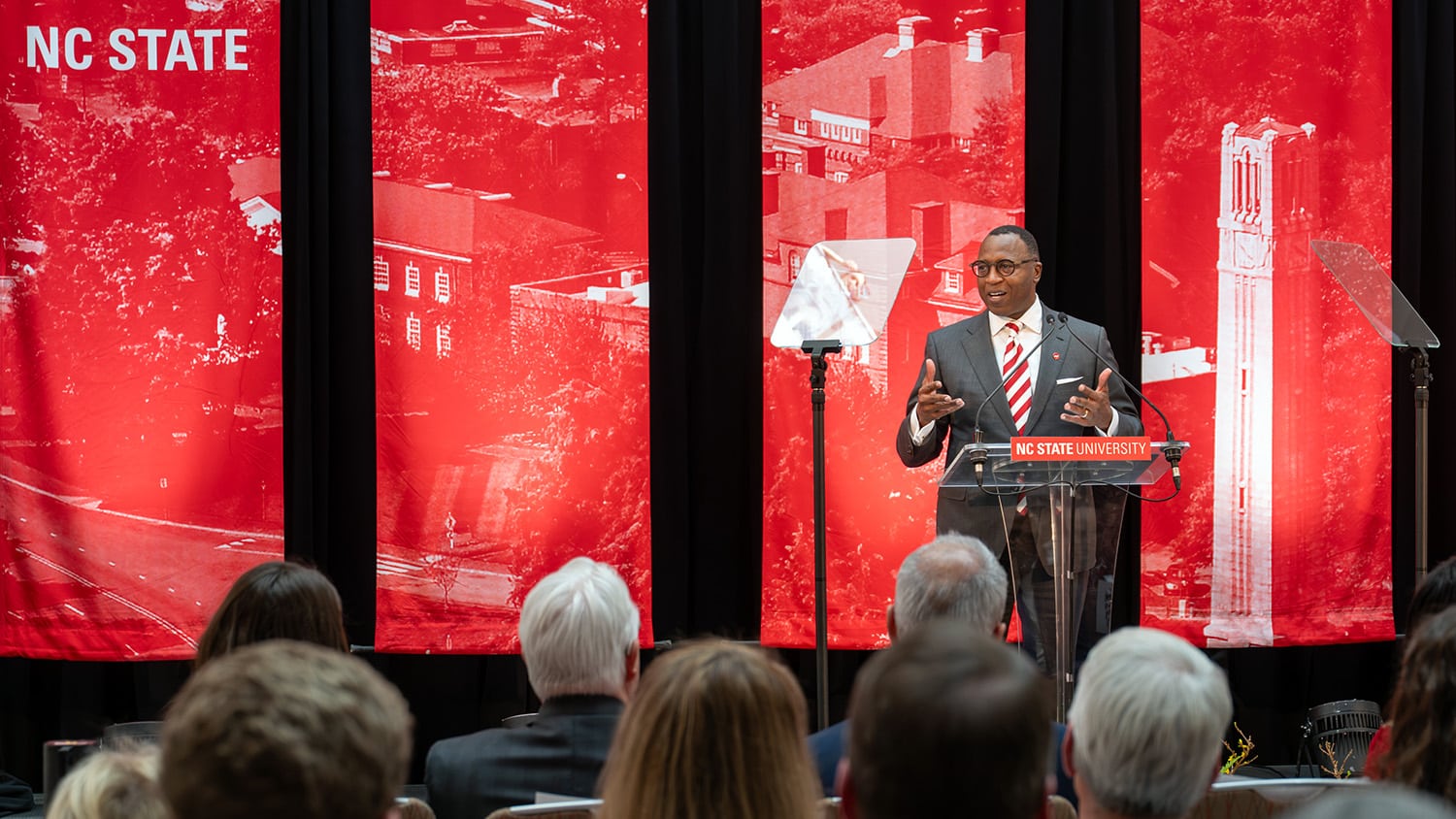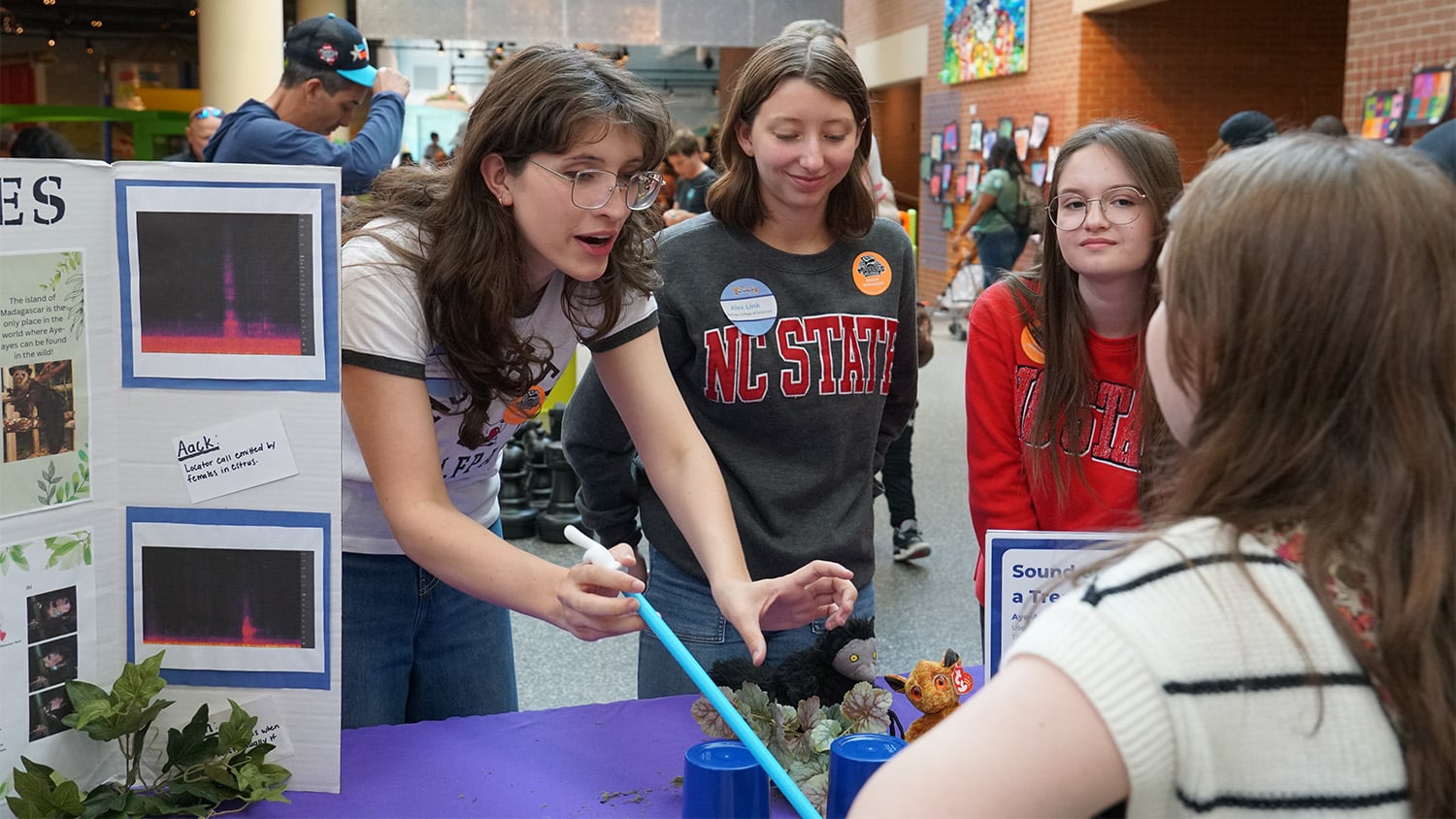Restoring Hope — and a Little Color — to a Family-Owned Enterprise
Last September, Suzanne and Jared Garland watched their family-owned campground and their livelihoods be swept away by the flooding caused by Hurricane Helene. With some help from community volunteers, an NC State Alternative Service Break team and some landscape architecture students, they hope to reopen their sole means of income by Memorial Day.

NEWLAND, N.C. — On the morning of Sept. 25 last year, Suzanne and Jared Garland stood on the U.S. 19 East bridge over the North Toe River to watch their last-ditch dream flood under 40 feet of water.
The couple, who grew up in nearby Mitchell County, had moved around a bit during their 15-year marriage. Jared went to school in Missoula, Montana, for a while. They moved back to North Carolina due to Suzanne’s health issues.
As Jared enrolled in school to join the North Carolina Wildlife Service, Suzanne and her parents, Mike and Kim Gunter, bought the declining Mountain River Family Campground and began a five-year revitalization on the banks of the area’s dominant waterway.
Earlier in the week, under a flood warning, they moved the 42-foot trailer in which they live permanently from the campground to higher elevation at a nearby elementary school. That parking lot ended up being their home for the next four months.
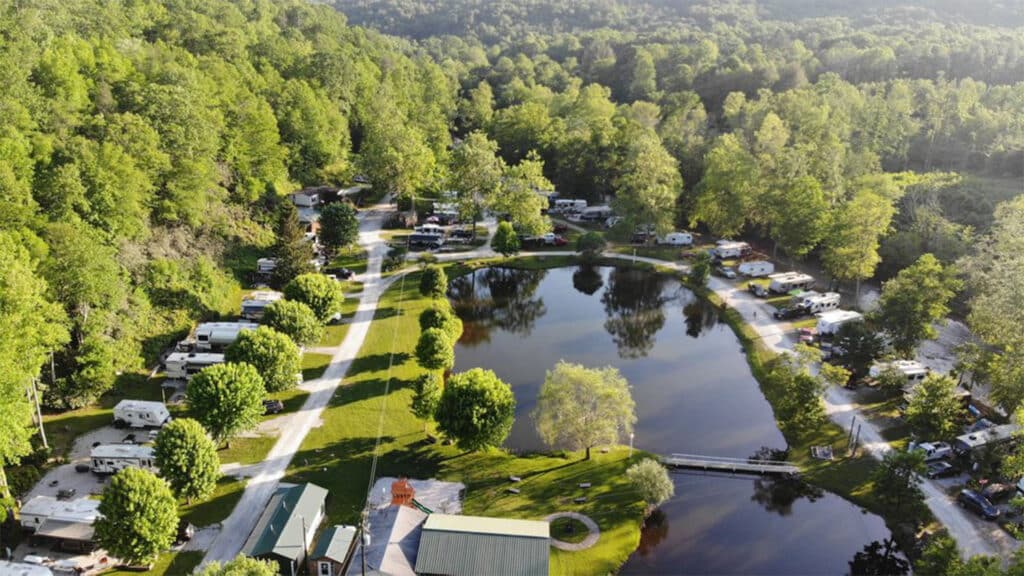
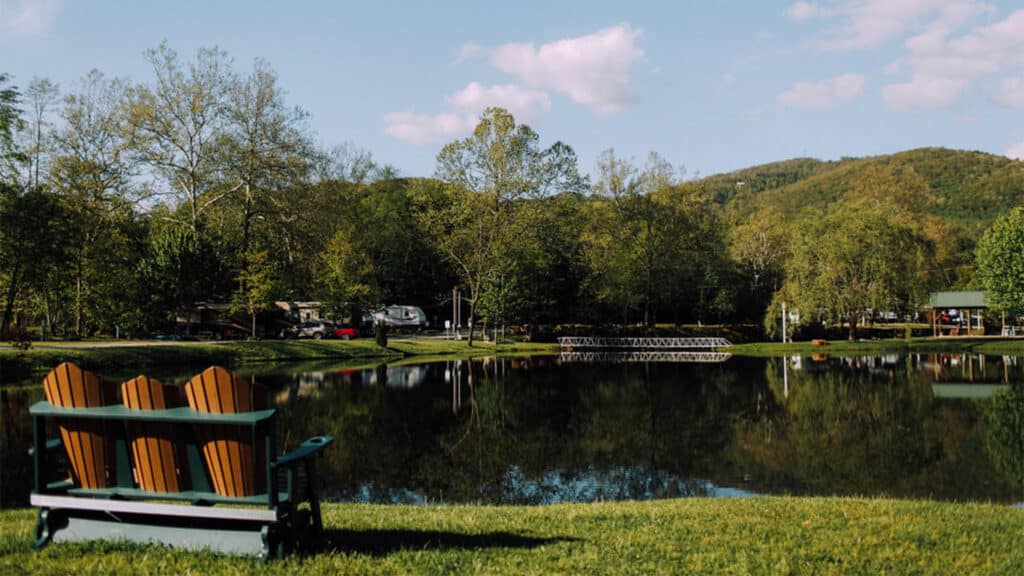
In the two weeks after Hurricane Helene, the couple helped conduct search-and-rescue missions, locating and identifying those lost in the storm. At first they could only see the campground that was their livelihood from the 19 East bridge, unable to travel on the road to their property.
Once they could, it was a scene of utter devastation. Gone were all 60 campsites, along with the permanent structures like the bathhouse, the laundry and the camp store. Washed away were the cornhole boards, the arcade games, the fire pit and other amenities that created the intentionally chill vibe that differentiated Mountain River from the other half dozen or so privately owned campgrounds in the county.
“Once Jared and some of our helpers were able to get into the property, there were so many trees down, so much destruction, that it just seemed impossible,” Suzanne said. “After several hours of cutting into the property, he just said, ‘There’s no way — there is no way we can do this.’
“About 30 minutes later, he got a phone call from a group of volunteers from Pennsylvania who came in with chainsaws and heavy equipment. They helped us clear a way in.”
Their losses, however, were not covered by insurance because their policy didn’t cover flood damage. They received no help from state or federal agencies to restore their 13-acre property, except for some immediate work by the North Carolina National Guard and the U.S. Army’s 82nd Airborne.
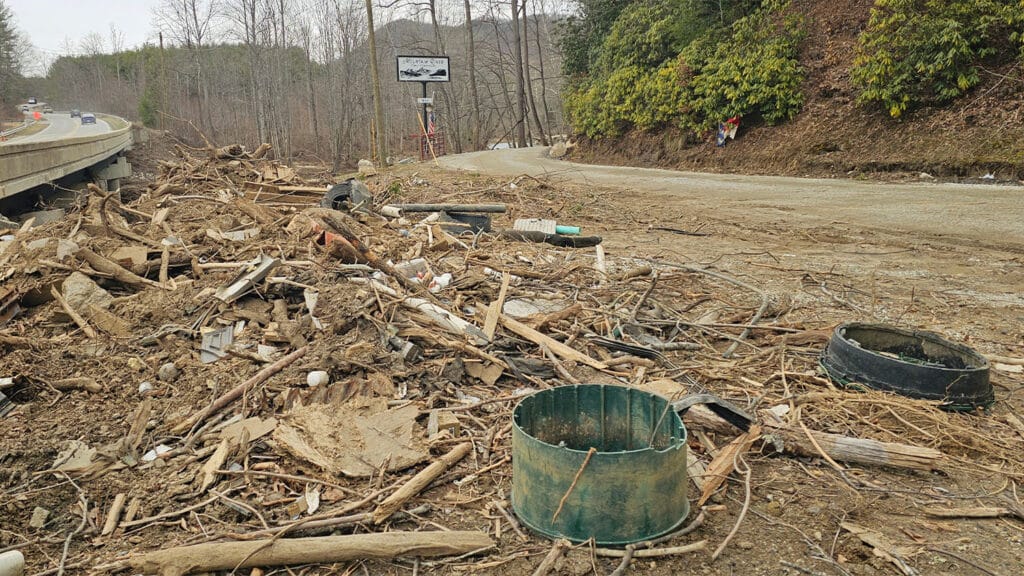
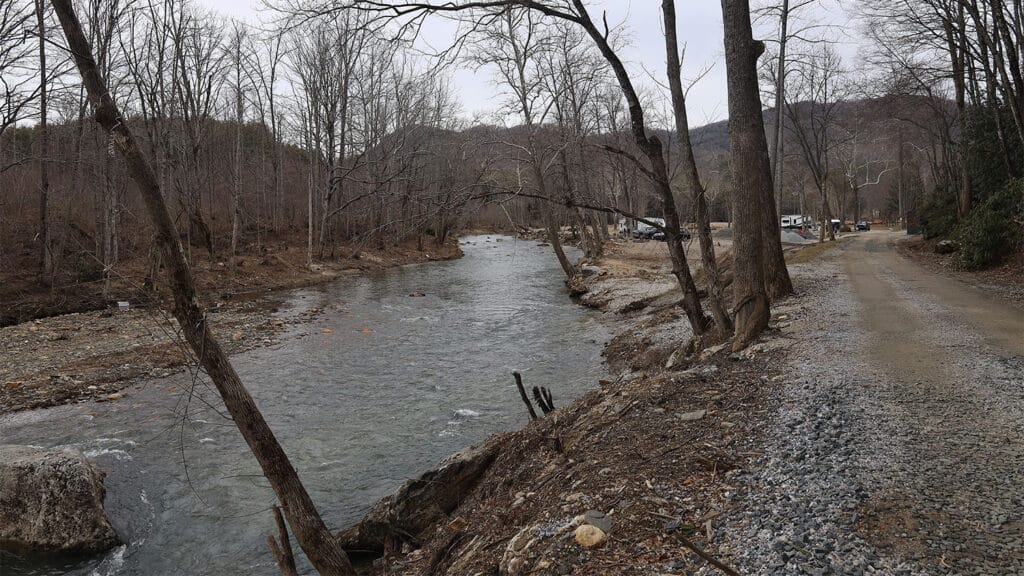
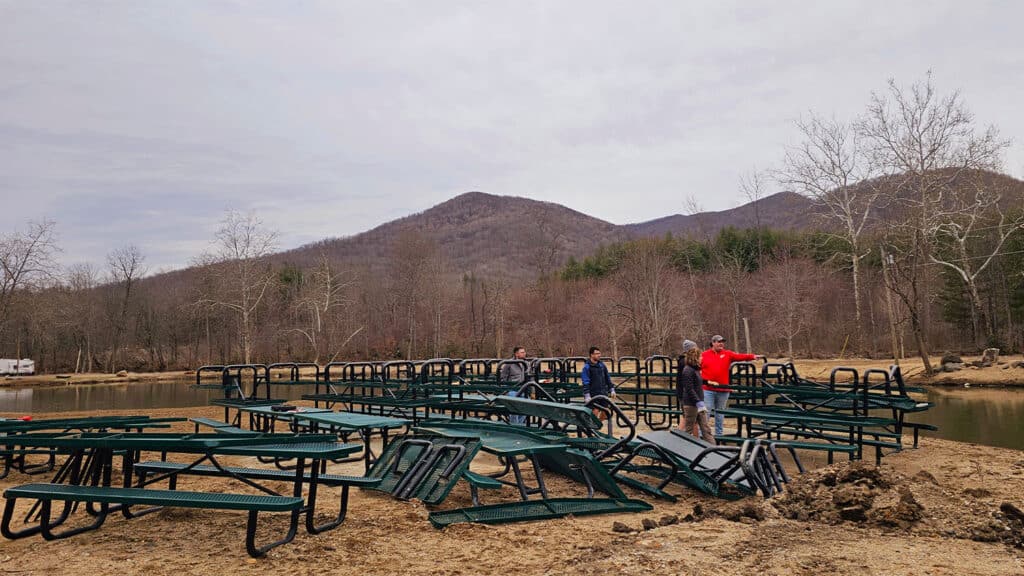
For the most part, the help they’ve received in recovering their livelihood has come solely from service groups and contributors to a GoFundMe campaign that has raised nearly $100,000 from almost 1,000 contributors. With those funds, they were able to purchase an all-terrain vehicle to help clear debris, a shipping container to store their belongings and a shed for Suzanne to continue her silversmith business.
“You keep hoping that some kind of help will come, but you don’t really expect it,” Suzanne said. “We are rebuilding with the help of others.”
Two of the service groups that are working at the Garlands’ campground this week consist of students from NC State: an eight-member team from the Student Leadership and Engagement (SLE) Alternative Service Break program here on a western North Carolina service trip, and five landscape architecture master’s and Ph.D. candidates from NC State’s chapter of the Student American Society of Landscape Architecture (SASLA). They are among the family-owned campground’s first outside volunteers since Thanksgiving.
They are restoring flower beds, salvaging what they can of 60 mangled, twisted picnic tables and picking up remaining debris on the graded land because next week pavers will arrive to rebuild the roads to all campsites. Their work has provided some desperately needed hope that the campground will reopen as planned by Memorial Day and remain open through fall’s leaf season.
The good news is that because of a social media post and the crowdsourced fundraising, regular campers ignited the recovery efforts. Beginning with the trout fishermen of April and including the family campers of the summer and the fall leaf watchers, the books are full with campers, RVers and other vacationers who are expected to return to the western mountains in just a few months.
“I had to cut off reservations,” Suzanne said. “People can’t wait to come back.”
We have been able to do much of the heavy work, but the thing we lost, and one of the things we miss most, is the landscaping, the splashes of color the flowers will provide.
The NC State ASB team in western North Carolina is led by advisor Harrison Andrews, a graduate student in higher education administration and program assistant for SLE’s Community and Civic Engagement, and team leaders Blaire Garrett and Susannah Weaver, along with students Seth Pies, Michael Guirgis, Monica Jin, Haley Berland and Annie Allen.
The SAALA team, which traveled to various sites in the western mountains during their spring break, included Drea Blackburn, Marvin Lodge, Tess Stogner, Liliana Teta and Natalie Charlson.
Their work was an answer to the Garlands’ call for continued help in rebuilding their campground.
“Honestly, what we needed the most were the hands,” said Suzanne, who prized her third-generation daffodils and lilies, her spruce trees and colorful azalea bushes along the banks of the 2-acre pond. “We have been able to do much of the heavy work, but the thing we lost, and one of the things we miss most, is the landscaping, the splashes of color the flowers will provide.
“That is pretty far down on my list of things to do, but having someone come in and do that means the world to us. It’s kind of what we were known for.”
- Categories:
